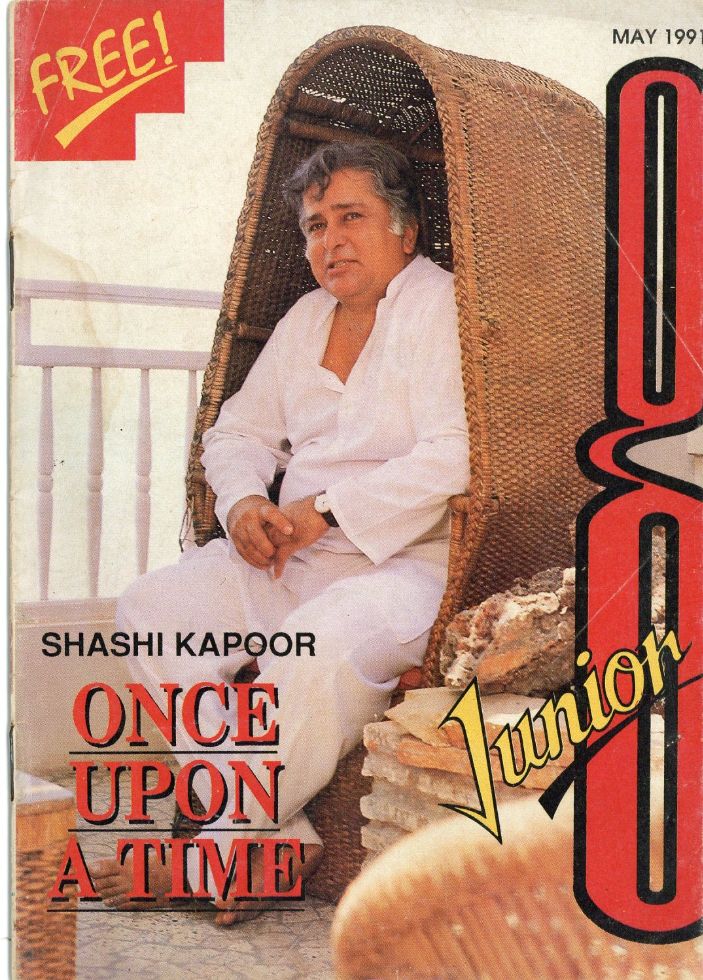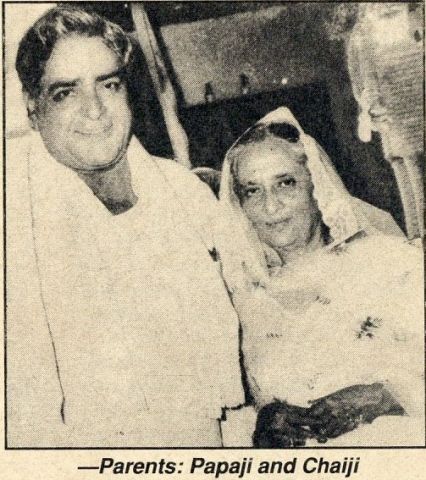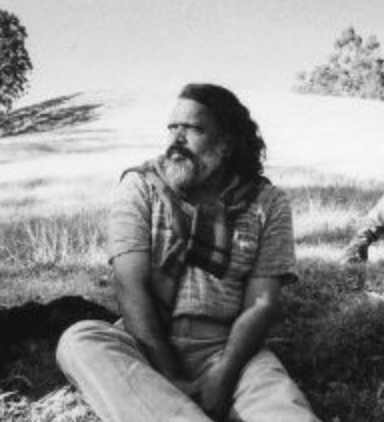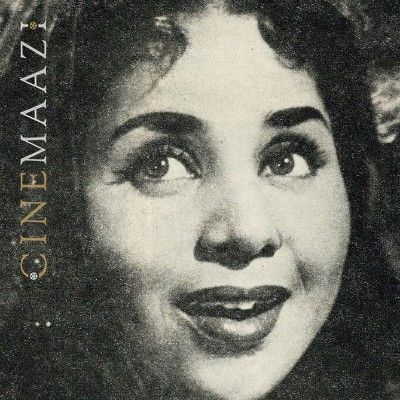Shashi Kapoor: Once Upon A Time- Matunga Memories

I was born on a hot summer afternoon in the month of March. Those days women delivered babies at home. I was delivered at home too, at Kaliganj, our home in Calcutta. There was a fire brigade next to the house and when I was born, nobody could hear me crying because at that precise moment a brigade bell was clanking very loudly on the street outside. A rather strange welcome for a new-born, but that's how it was. Ever since, I've always felt sentimentally about fire brigades.
It's funny, but I was not supposed to be born. My mother, whom we called Chaiji, tried her level best to abort me, stuffed herself with every possible medicine, to destroy me but I refused to die, hid somewhere in a corner of her womb. That is why, probably, I am born the way I am... a big head, a crooked nose, uneven teeth. After five children (two lost in infancy) my mother's health didn't permit another delivery. But, since I was determined to come into the world, I did. They called me an incomplete child. And maybe that is why they pampered me so much that from childhood I got used to having my way.
My father worked with the New Theatres then. We were not rich, in fact, we were very poor. My parents slept on the chattai, because we could not afford charpais, and my father found this uncomfortable, being big built, but except for this, there were no serious complaints. My father enjoyed his work and his moments of glory came when he performed his shows. Vidyapati, Sita were amongst his popular plays. In the neighbourhood, my mother was very popular too. The women discussed her in whispers, referred to her as 'the actor's wife.'
In 1940, my father left 'New Theatre' to join 'Ran* Studios', in Bombay. In the beginning, he came to Bombay alone. Later, when he had purchased a house in Matunga, he sent for all of us. The house had five rooms and a tiny garden, a rather spacious house, but then we were a fairly large family too. Rajji, Shammiji, my sister Urmila and me. The two sons my mother lost in infancy were between Rajji and Shammiji. Binny and Laali. One died of pneumonia, the other due to the swallowing of rat poison. Both died at a very young age, but for years after they were no more, whenever Chaiji mentioned them, her eyes would fill with tears...
I could never understand why, though. But then, those days, I seldom understood anything. I was the lallooram of the family. At home, my sister dominated me. On the streets, the other kids dominated me. At home, I coped by throwing tantrums. Outside, to anyone who attacked me, I put forward Shravan Kumar, a young lad employed at home to look after us kids. Shravanji is still with us. Recently we celebrated his shasti poorti at Prithvi Theatre. Everyone in the family came for the function. Today, he is commonly referred to as Uncleji by everyone. Even I call him Uncleji, even though he is only eleven years older than me. I was two years old, and he, 13, when my mother put me in his charge.

It is said, I was a very hot-headed child. And to keep me calm, they'd rub my scalp with a palmful of coconut oil everyday, so that I'd have my temper in control. It didn't help. At 6 p.m. everyday, a toy-seller, Abdul Musalman passed our street. The minute I heard his voice, I'd go mad. I'd drop whatever I was doing, run to the gate and snatch all his toys. Everyday, I wanted to buy a new toy. Something my mother couldn't afford, naturally.
One day my mother decided that she wasn't going to tolerate any of my tantrums and no matter how much I wept, she would not spare more ek annas to buy me new toys. When this incident occurred, we had moved out of our ground floor house to the opposite building on the third floor. I ran up to my room, opened the window and threatened to jump out if a new toy was not given to me that very moment. Had it not been for the timely entry of Shravan Kumar, I would have surely jumped out of the window that day.
This incident left a deep impression on my mother, I think. Looking back it was a very cruel joke to play on a woman who had already lost two sons in infancy. But at that time I didn't understand all this. Besides, I think, I was myself a problematic child. Even the toys I picked reflected it. I only chose violent toys — guns, daggers, knives. Unlike my elder brother, Raj Kapoor, I never played with balloons and kites.
After this incident, my mother refused to reprimand me on anything. I feel embarrassed to admit this, but I was breast-fed until I was seven years old. Much after my milk teeth had dropped and I had begun attending school. Little wonder then, that I grew up with my teeth all crooked. I had a big complex about my teeth and my big head. I was an extremely fat child and my thighs brushed against each other when I walked. The only thing I was supremely confident about was my unique hair-style and I took ages to comb my hair into a middle parting, which I decorated with a kiss-curl on the right side of my forehead. No matter in how much hurry I was, I wouldn't leave for anywhere without my kiss-curl!
Even Raj Kapoor, during the making of Awara (1951), wherein I played his childhood, had to wait for the shot, because the curl wasn't coming up to my satisfaction. If you remember, there is a scene where I'm combing my hair while talking to my blind mother (Leela Chitnis). This scene was incorporated in the film only because my brother couldn't get over my hair-style obsession. All through the making of Awara, I behaved as if I was a bigger star than Raj Kapoor. Before every shot, I expected to be served two packets of wafers. And after every shot, I expected to be told how good I was. Once we were shooting at the Crawford Market and it was late in the night. Since there was still a long time for my shot, they put me to sleep on the sets.
At 2 a.m. when the shot was ready, and the lighting perfectly set, my considerate brother instructed somebody to wake me up gently with a warm glass of milk. When I came for the shot however, I refused to drink the milk and refused to give my shot either. "I want to eat omelette-pav," I told my brother. There was panic on the sets. Where on earth could they get me an omelette-pav at midnight? My brother ought to have slapped me that day. Coming from a theatre family, this kind of an idiosyncrasy should not be indulged in. But Rajji was very gentle with me. He organised for an omelette-pav and Bournvita. And only after I had stuffed myself satisfactorily, he took the shot. Maybe Rajji's this generosity was an emulation of Papaji. Like my father, he felt, he needed to kitten handle me.
Papaji was always very gentle with me. He understood I was a complicated child, and took precautions not to aggravate my complexes. After the jumping-out-of-the-window threat, both my parents were extremely careful with me. I was very fond of singing but couldn't sing to save my life. Also, for some strange reason, everytime I sang, my eyes filled up with water... And this was something my brothers found very amusing. They'd rag me with, "Kyon lallooram gana gayega?" Papaji knew of my this problem and would go out of his way to encourage me to sing whenever I was in a group.
Very often, late after dinner, Papaji would assemble all of us kids in his room and ask us to sing. When it was my turn, he'd warn everyone beforehand that anyone who laughed, would not be given his pocket-money for the month. And this was something nobody would risk doing. My cousins would stuff their kerchieves into their mouth to stop their laughter. Everyone suffered in silence because nobody wanted to lose out on their one anna kharcha. Nobody said so, but I was a good-for-nothing child. I couldn't do even one thing well. I could not sing. I could not dance and I certainly wasn't good at studies. Nor could I patao girls. But yes, there were two things I was very good at. Roller-skating, which came in handy years later during Aa Gale Lag Ja (1973) and that seven stone nishana game, of which I was a master. Everyone knew ke agar Shashi ne nishana mara hai to patthar tootega hi tootega!
Shashi Kapoor played the character of a young Raj Raghunath in his elder brother Raj Kapoor's film Awara (1951)
By the time I was in matric, I was totally fed up of studies. I looked forward for the days to end so that my friends and I could have our gab sessions outside the Irani restaurant. When exam time approached, however, one by one, my friends began to disappear from the adda. Everyone was studying for the prelims. Except me. I disliked the idea of mugging from textbooks. I hated sitting for long hours in the classroom, but I liked my teacher, Charles Ferro. When the results came out, I didn't need to check the newspapers to know that I had flunked. Even though it was all my own doing, I felt miserable about failing. When my father saw me sulking by the window, he said, "mayoos ho?" I nodded. He asked me to quit studying. "You will appear again, fail again, change your school again... It will go on. Aakhir mein to theatre hi karna haina?" I nodded again. Then he said something that I have never forgotten. "To stop schooling does not mean to stop growth... shikshaa, musalsal rahe," he said. This coming from a man who was himself a Law graduate was quite commendable. But then he was an extraordinary man.
At sixteen, I was seriously involved with theatre. In the mornings when I went with my father to `Prithvi Theatre' at The Royal Opera House, I would often see my school friends rushing to college. In just a few months, I had drifted away from my old friends. My dreams were different. I was meeting new people - Prayag Raj, Tiger and others. We did 'extra' roles and were paid five rupees as salary. Our day started at 10 a.m. and there were days when we worked till late night. Most of the time, however, we were merely having a ball. Sometimes, when there wasn't much work, Papaji sent us home and we played cricket in the galli. Prayag was very shy initially but slowly I befriended him. Once, during lunch break, I asked him if he'd share my dosa. He agreed. Next day, he got me chappatis with sabzi rolled in it, which his mother had cooked. That was the beginning of a lasting and an almost volcanic relationship.
Months passed by and by now we kids were travelling for shows out of Bombay too. Shows involved extensive travelling. Once, while we were performing in Indore, we were staying in a cheap highway rest-house. Now, theatre, being a poor man's fancy we were forever hounded with those eternal echoes of "no money... no money." Whether one broke a bucket, misplaced a towel or asked for an extra pillow or a chappati, one was immediately bombarded with, 'don't you know we cannot afford it?' Fifty people shared a small single room and if one wanted to go to the toilet, one had to trample over a pile of bodies before one could empty one's bladder. That's not all. Even before one could reach the toilet seat, a sleepyhead would spank you for disturbing his reverie. Choicest Punjabi abuses were rained and this happened to someone or the other everyday. One common discussion at rehearsal every morning was, "Kal kisko mar padi?"
One night, the filth and the overcrowding in the room made me so sick that I came down with temperature. I had, I think, caught some virus. As the hours went by, my head reeled and my eyes burnt and I needed someone to constantly change the baraf pattis on my forehead. My friend Tiger, sat howling beside me, when in fact he should have sent for my father. Usually tough with his troupe, and not wanting to make a fuss just because the patient happened to be his son, Papaji, sent me some homoeopathic medicines. "Give him 5 pills, 5 times a day", he said and went away for his rehearsal. By evening, my condition worsened. I vomited eight times since afternoon. At last, my father blessed me with his visit. A doctor was sent for instantly and I was shifted into my father's room. Within a week, I became perfectly alright and was sent back to the filthy room and mosquitoes.
This article was originally published in May 1991 as the first chapter of Junio G magazine's supplementary issue- Shahsi Kapoor: Once Upon A Time. The image used have been taken from the original article
About the Author






.jpg)


